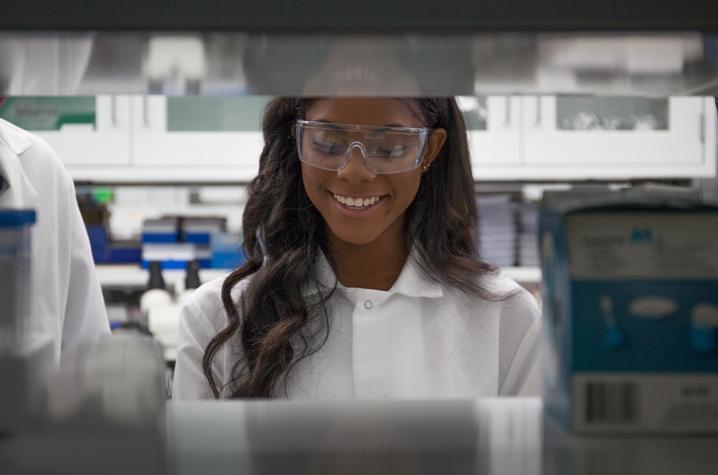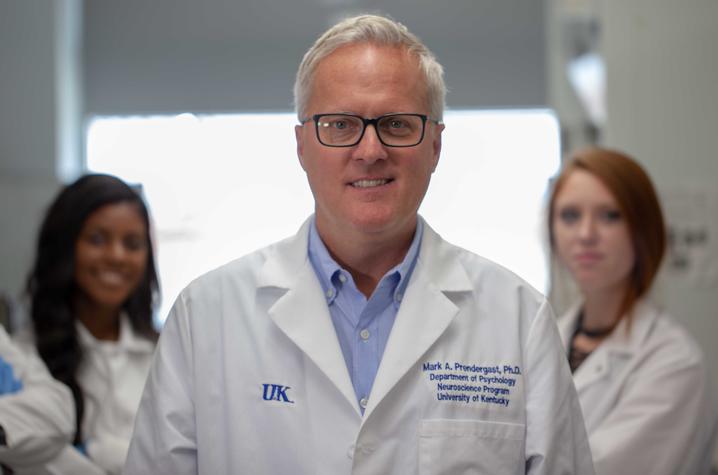UK Neuroscience Professor Shapes the Minds of Tomorrow With Hands-on Lab Experience
LEXINGTON, Ky. (June 13, 2019) — One of the most rewarding aspects of higher education is the chance to train the next generation of leaders and workers. Every so often, students are lucky enough to find opportunities that go above and beyond to give them practical experience in preparing them for their future. Mark Prendergast’s BIO 199 class is one of those opportunities.
Prendergast’s class is designed for freshmen neuroscience majors. The course is part of the STEMCats Living Learning Program at the University of Kentucky in the College of Arts and Sciences, with its students either in that program or the Lewis Honors College. There are many existing sections of the course, each being taught by a different faculty member who conducts different types of research related to biology.
The STEMCats Living Learning Program was founded in 2014 and receives funding from a Howard Hughes Medical Institute grant awarded to Vincent Cassone, chair of the Department of Biology. Through this grant, the program initiated the offering of BIO 199.
Although it is part of the BIO 199 Authentic Research Experience in Biology class, Prendergast’s class is an independent section incorporating animal brain study.
“I created this unique version of BIO 199 in 2017 and I teach the class as a laboratory-based class with informal small group discussions,” Prendergast said.
Prendergast comes with a plethora of experience that inspired the creation of his class. He is a neuroscientist with a primary appointment in the Department of Psychology and is also the director of the neuroscience program also in the College of Arts and Sciences. Prendergast came to UK in 1997 accepting a post-doctoral research fellowship in the Department of Pharmacology. He joined the faculty in the psychology department in 1999.
Prendergast felt that his BIO 199 class should have an interactive approach to an introduction to research.
“It’s actually the most beneficial part of this class,” Prendergast said. “My students, who are all freshmen, work directly with myself and graduate students in my laboratory to develop the critical thinking skills we target.”
Aside from critical thinking skills such as rational thinking, forming hypotheses and executing hypothetical tests, students are given the chance to gain practical experience geared toward solving real-life problems. One of these scenarios is on the topic of drug and alcohol addiction.
“Students are introduced to this concept and how plasticity of the brain contributes to the development of addiction,” Prendergast said. “After that, I work with them closely to develop a hypothesis that can be tested in an animal brain cell culture.”
This approach helps students learn more about the development of substance dependence from a practical and accessible standpoint.
In the future, Prendergast hopes absolutely nothing about the class changes.
“The class is wonderful as it is,” Prendergast said. “Many students who take BIO 199 develop a love of research and expand their participation in other labs by enrolling in 300-level independent research courses.”
Above all else, Prendergast is grateful to Cassone for enabling him to create and run the class.
“I am indebted to Dr. Cassone for giving me the opportunity to work with these many outstanding young ‘scientists in training,’” Prendergast said. “In addition, I am indebted to my many graduate students, who have served as co-mentors to the BIO 199 students.”






